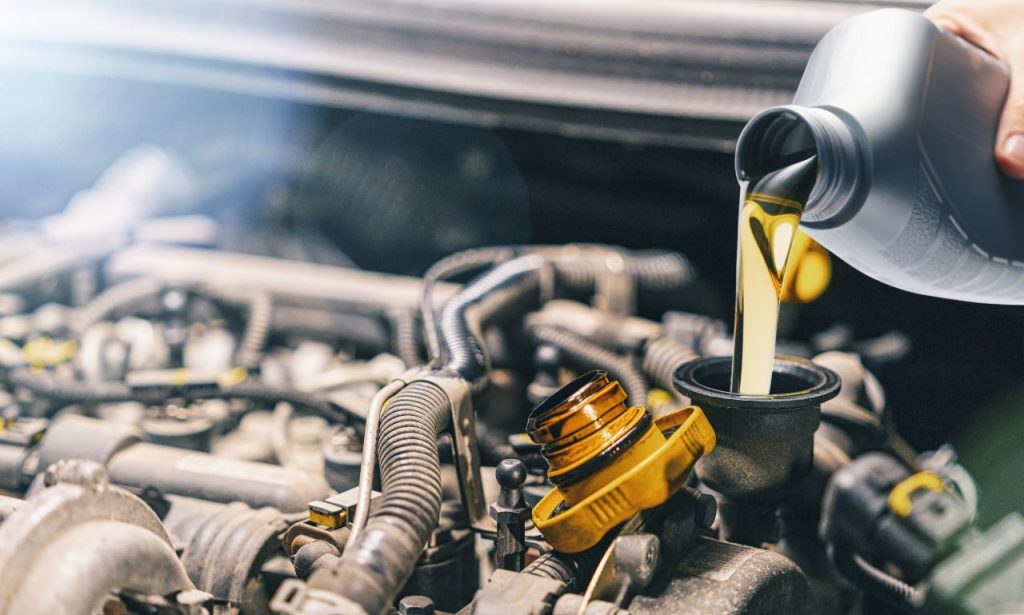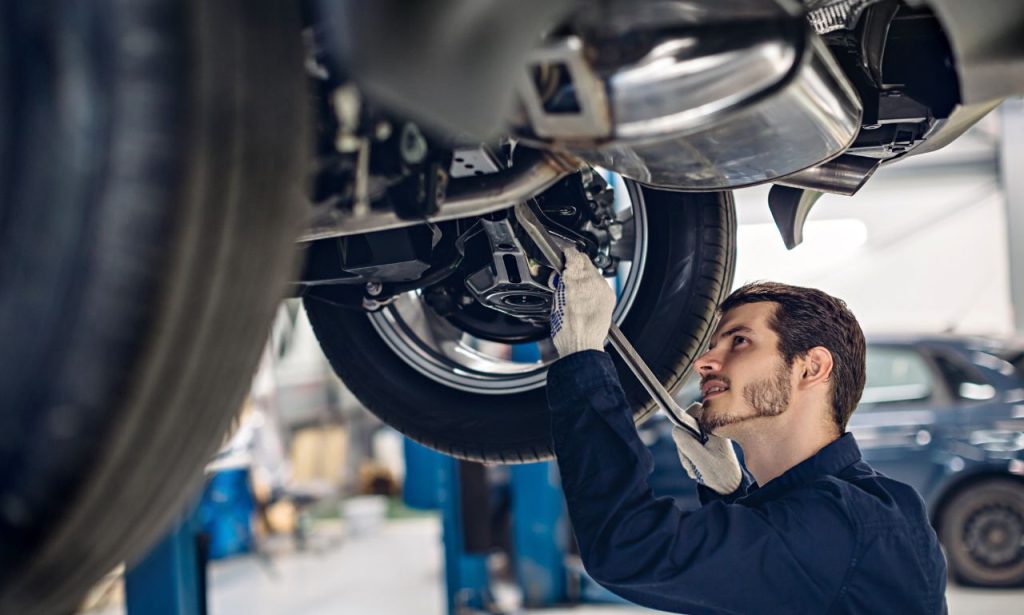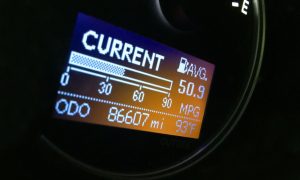Have you noticed that your high mileage car is not performing as efficiently as it used to? It can be frustrating to experience decreased performance and increased maintenance costs. But fear not, there are ways to breathe new life into your high mileage vehicle and make it run like new again. As cars accumulate miles, various components start to wear down, leading to reduced fuel efficiency and overall performance. However, with the right maintenance strategies and techniques, you can revitalize your high mileage car and enjoy smoother rides for years to come. Maintaining a high mileage car requires special attention and care. By implementing proactive maintenance routines and making strategic replacements, you can optimize the performance of your vehicle and potentially extend its lifespan. In this article, we will explore effective tips and methods to make your high mileage car run like new, ensuring that you get the most out of your driving experience.
Stay on Top of Routine Maintenance
A vehicle with thousands of miles on it deserves extra love. Routine maintenance can make the difference between keeping it running smoothly and watching it fall apart. High-mileage vehicles need consistent care, especially as they approach key milestones like 150k, 200k, and beyond.
The Oil Change Game
Oil is the engine’s lifeline, and a high-mileage car needs a lot of it. Routine oil changes are not just “recommended” for high-mileage vehicles; they’re essential. A regular oil change prevents extra wear on moving parts and avoids contamination in motor oil. Neglecting oil changes can lead to serious engine issues, reducing your vehicle’s longevity.
- High-Mileage Oil: Use high-mileage oil to condition seals, reduce oil consumption, and extend engine life. High-mileage oils are specifically formulated with additives to prevent leaks and maintain performance even in older engines.
- Frequency: Change oil every 3,000 to 5,000 miles for optimal efficiency. Regular oil changes keep the engine running smoothly, extending the vehicle’s maximum life expectancy.
Checking and Replacing Fluids

.
Fluid levels are the key to running your 3rd vehicle just as smoothly as your brand-new one. Routine maintenance means ensuring all vital fluids are topped up and replaced as needed.
- Transmission Fluid: Replace at the 30k-mile mark or every 30,000 to 60,000 miles to maintain seamless gear shifts. Cars that hit 180k or 196k miles could face mechanical failure if transmission fluid isn’t replaced. Old or low transmission fluid can lead to slipping gears, overheating, and eventual damage to the transmission.
- Brake Fluid: The biggest transmission fluid cooler can’t save you if brake fluid is neglected. Keep your brake fluid clean and at recommended levels. Contaminated brake fluid can lead to reduced braking performance and safety hazards.
- Coolant: Check coolant levels, coolant tank, and coolant gaskets to ensure the engine runs at optimal operating temperature, especially during hot road trips. Proper coolant levels help prevent overheating, which can cause significant engine damage.
- Power Steering Fluid: Keeps the steering smooth. Top it off to prevent steering stiffness. A well-maintained power steering system makes driving more enjoyable and safe.
Maintaining Tires
Bad advice and neglecting your tires can lead to problems down the line. A blown tire on a 12-year-old vehicle isn’t just an inconvenience; it’s dangerous. Proper tire care ensures safety and improves your vehicle’s efficiency.
- Rotate Tires: Regular tire rotation every 6,000 to 8,000 miles prevents uneven wear. This extends the life of your tires and ensures better traction on the road.
- Align and Balance: Avoid a bumpy ride and ensure safety by balancing tires and performing regular alignments. Misaligned tires lead to uneven wear, affecting safety and performance.
- Pressure Check: Keep tires at optimal pressure to extend the life of your cheap tires and improve fuel efficiency. Underinflated or overinflated tires can lead to reduced handling, increased wear, and even blowouts.
Replacing Filters and Belts
Worn belts and dirty filters can lead to premature wear of essential car parts. These seemingly small components play a big role in maintaining your car’s health.
- Air Filter: The air filter is a key component in ensuring clean airflow to your engine. Replace every 15,000 to 30,000 miles to avoid dirt and debris. A clogged air filter reduces engine efficiency, making the car work harder and consume more fuel.
- Fuel Filter: For those who’ve clocked thousands of miles, fuel injectors can easily get clogged, reducing efficiency. Swap out the fuel filter every 30,000 miles. Clean fuel injectors are key to maintaining optimal fuel economy and performance.
- Belts: Replace timing belts every 60,000 to 100,000 miles and serpentine belts at the 50k mile mark. Don’t risk having your head gasket damaged or major repairs simply because of a faulty belt. A broken belt can lead to serious engine damage, leaving you stranded.
Proper Battery Care
A dead battery can stop your high-mileage car in its tracks. Effective battery care will prevent unexpected breakdowns and keep your car running smoothly. The older the car, the more attention the battery needs.
- Regular Check: Use a battery charger or a battery maintainer to keep battery cells charged. Regular checks ensure your battery is always ready to go, especially in colder weather when batteries are more prone to failure.
- Terminal Clean: Remove corrosion to maintain a secure connection. Corrosion can lead to poor conductivity and prevent your car from starting.
- Replace if Weak: If your 200k miles vehicle has slow cranking or dim lights, it might be time for a battery replacement. A reliable battery is essential for running electrical systems smoothly.
Keeping the Car Clean
A clean car not only looks better but also runs better. Dirt and grime can cause wear and tear on your car’s exterior and interior. Regular washing and waxing protect the paint and prevent rust. Clean the interior to remove dust and debris that can damage upholstery and electronics.
Use Engine Treatments
Engine treatments can help maintain and even improve the performance of a high mileage car. These treatments can clean internal components, reduce friction, and improve efficiency.
Fuel System Cleaners
Carbon buildup affects fuel injectors, reducing your vehicle’s efficiency. It’s time to clean out the bad fluids and make that mileage engine purr. Fuel system cleaners can restore lost power and efficiency.
- Fuel Injector Cleaner: Add a fuel system cleaner every 3,000 to 5,000 miles. It keeps injectors and intake valves clean. Clean fuel injectors ensure proper combustion and improve fuel economy.
Oil Additives
There’s more to engine care than just regular oil changes. High-mileage engines benefit from specific treatments to reduce wear and tear.
- High-Mileage Oil Additives: Keep leaks at bay, particularly when your engine crosses the 100,000-mile mark. These additives help maintain gasket flexibility, reducing leaks and oil consumption.
- Engine Flush: Flush out sludge and deposits before an oil change. It’ll ensure fresh oil stays clean longer. Sludge buildup can restrict oil flow, leading to increased wear and reduced efficiency.
Engine Flush
An engine flush can remove sludge and deposits that accumulate over time. Perform an engine flush before an oil change to ensure the new oil stays clean and effective.
Follow the Manufacturer’s Maintenance Schedule
Whether it’s a 2-4-year-old vehicle or something that’s seen 365k miles, the maintenance schedule from the manufacturer is gold. Service intervals are your best guide for keeping your car in optimal condition. High-mileage cars benefit significantly from adherence to the recommended service schedule.
- The Basics: Oil changes, brake checks, and filter replacements are essential components of your car’s health. Basic maintenance prevents minor issues from turning into costly repairs.
- Major Services: Timing belt replacements, differential fluid, and comprehensive inspections at service intervals can extend the car’s maximum life expectancy. Major services ensure that critical components are in good working condition and prevent unexpected breakdowns.
Inspect and Replace Worn Parts

Regular inspections can help you identify and replace worn parts before they fail. Pay close attention to the following:
- Brakes: Inspect brake pads, rotors, and calipers for wear and replace them as needed.
- Suspension: Check shocks, struts, and bushings for signs of wear and replace them to maintain a smooth ride.
- Exhaust System: Inspect for leaks and rust, which can affect performance and emissions.
- Hoses and Belts: Look for cracks, leaks, and wear, and replace them to prevent breakdowns.
Stay Vigilant
Inspection is the key to finding out what’s worn out and needs replacing in your mileage vehicle. Staying vigilant with inspections means you can address issues before they lead to breakdowns.
- Brakes: No “bunch of miles” car can operate safely with bad brakes. Check pads, rotors, and calipers regularly. Worn brakes reduce stopping power, increasing the risk of accidents.
- Suspension System: Suspension parts like shocks and struts can degrade, causing an uncomfortable ride. A worn suspension affects handling, making the car less stable and harder to control.
- Exhaust System: Check for leaks or rust that can impact performance or emissions. A faulty exhaust system can lead to increased emissions and reduced efficiency.
- Hoses and Belts: Replace cracked or worn hoses to prevent breakdowns and unexpected auto repairs. Hoses that fail can lead to overheating or loss of power steering, which are serious safety concerns.
More Than Just Mechanics
A clean car isn’t just pretty; it runs better. Keeping your high-mileage car clean can protect against damage road salt and prolong its life. Regular cleaning prevents rust and keeps the car looking good, which also maintains its resale value.
- Regular Wash: Washing protects against rust and corrosion, especially during winter months. Road salt and grime can accelerate rust, particularly in older vehicles.
- Interior Maintenance: Clean your cabin air filter, upholstery, and dashboard to keep the car’s value high. A clean interior makes the driving experience more enjoyable and keeps the car feeling newer for longer.
Engine Treatments & Tune-Ups
At every significant milestone – 100k, 180k, 200k miles – consider a tune-up to keep the engine firing properly. A well-tuned engine runs more efficiently, saving you money and extending the life of your car.
- Spark Plugs: New spark plugs ensure a clean burn, improve fuel economy, and prevent misfires. Worn spark plugs can lead to inefficient combustion and reduced engine power.
- Fuel System Tune-Up: Clean fuel injectors and replace critical fluids like the transmission and differential fluid for better performance. A well-maintained fuel system ensures your car runs smoothly and efficiently.
Donation Programs
When the cost of yearly non-routine maintenance becomes too much, consider the Goodwill Car Donations program. Instead of facing major repair costs, donate and claim a maximum tax deduction to support community-based life improvement programs. It’s a win-win – you help others, and you benefit from the tax write-off.
- Tax Benefits: You’ll receive a maximum tax deduction when you donate, particularly if you’ve been running a 200k mile or 3rd vehicle. Donating your car can make a big difference in the community and save you the headache of expensive repairs.
Conclusion
Maintaining a high mileage car requires commitment, but the rewards are worth it. By following these tips and staying diligent with maintenance, you can keep your car running like new. Remember, every mile you drive is a testament to the care and attention you give your vehicle. Keep up with routine maintenance, use quality products, and don’t ignore warning signs. Your car will thank you with many more miles of reliable service.
ALSO READ: Is Fuel Induction Service Worth It?
FAQs
For high mileage cars, it’s recommended to change the oil every 3,000 to 5,000 miles. Using high-mileage oil can also help reduce leaks and oil consumption.
Common signs include difficulty shifting gears, a burning smell, or unusual noises when the car is in gear. Regularly checking the fluid level and color can help you identify when it’s time for a change.
Look for signs such as uneven tire wear, a bumpy ride, or difficulty steering. Regularly inspecting shocks, struts, and bushings can help you catch issues early.
While not strictly necessary, high-mileage oil contains additives that can help condition seals and reduce leaks, making it beneficial for older cars with high mileage.
Signs of a failing battery include slow engine crank, dim headlights, and electrical issues. Testing the battery’s charge and inspecting it for corrosion can help you determine its condition.




